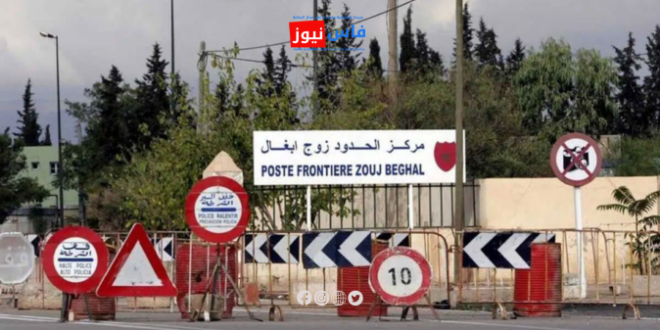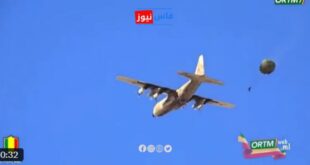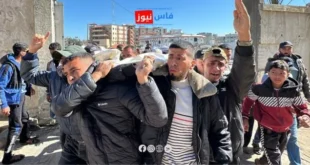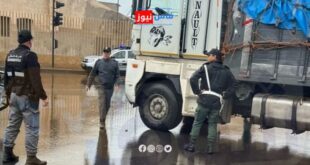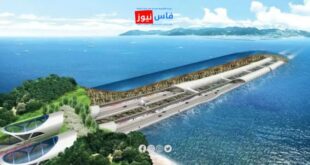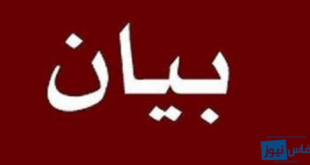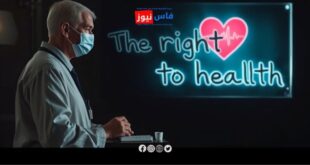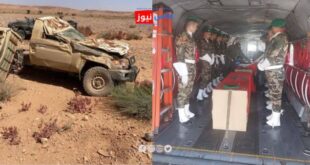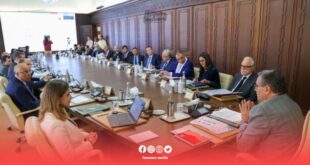Sixty young Moroccan migrants, who were detained in Algerian prisons, were handed over on Monday by Algerian authorities to their Moroccan counterparts.
The Moroccan Association for Assistance to Migrants in Difficult Situations in Oujda, which monitors the case of missing, detained, and held Moroccans in various migration routes – whether in Tunisia, Libya, or Algeria – specified that the operation took place at the Zouj Beghal border post, also known as Colonel Lotfi, on the Algerian side of the border, in two phases.
In a statement, the Association added that the 60 young people concerned, who had served their sentences in Algerian prisons and detention centers, came from several Moroccan cities: Fez, Bouarfa, Oujda, Berkane, Taza, Ksar El-Kebir, Mohammedia, Taounate, Nador, Safi, Youssoufia, Figuig, Chichaoua, Khouribga, Tetouan, Ouarzazate, Tan-Tan, Beni Mellal, Demnate, Sidi Bennour, El Kalaa, Ait Bilal, and Oultane.
The Association, presided over by Hassan Ammari, specified that “some of them had served more than three years and six months in prison, in addition to a year of administrative detention.”
The Association is closely following several cases in this context, as many young people are still detained, awaiting expulsion, a procedure that faces several technical and administrative obstacles.
The Association advocates for a solution to resolve this issue, and it appears that Algerian and Moroccan authorities, through their consulates in Algiers, Oran, and Tlemcen, are working to facilitate the expulsion of other young migrants, following an agreement between the two countries.
More than 480 Cases
Moreover, several young people remain in pre-trial detention, and their cases are being examined by judicial authorities. The Association has received more than 480 cases concerning these detained youths. It has also handled the procedures for the restitution of six bodies, including those of two young girls from the eastern region, whose families are waiting for the return of the remains, in accordance with judicial and administrative procedures that the Association has facilitated in the past.
The statement also specifies that some of the released detainees had served more than three years and six months in prison, in addition to a year of administrative detention. The Association emphasizes that hundreds of young Moroccans are still in administrative detention in Algeria, awaiting expulsion, a procedure faced with numerous technical and administrative difficulties.
Six Bodies in Algerian Morgues
The Association also recalled that it has received more than 480 cases concerning detainees and missing persons among young migration candidates, as well as the presence of six bodies in Algerian morgues, including two bodies of young girls from the eastern region, whose families are waiting for the return of the remains. The Association had previously facilitated the judicial and administrative procedures related to these bodies.
It is important to note that the International Committee of the Red Cross (ICRC) recently visited a group of young Moroccan migrants detained in Algeria, following a request made by the Moroccan Association for Assistance to Migrants in Difficulty. The Association addressed a letter to the ICRC coordinator for North Africa, requesting “an intervention within the limits of its powers and capacities.”
Victims of Scams
In this correspondence, the Moroccan Association for Assistance to Migrants drew attention to the difficult detention conditions of young Moroccans, indicating that some of them “were working as artisans before finding themselves in Algerian prisons and detention centers.” These young people were tried on serious charges, such as “human trafficking, money laundering, illegal immigration, or formation of criminal gangs.”
The Association emphasized that the detainees “suffer from inhumane conditions,” are subjected to humiliation, are deprived of communication with their families, and do not receive appropriate medical care. Furthermore, they are tried without being able to exercise their legal rights, including the right to defense and legal assistance, and their detention is prolonged without trial.
The NGO also reported that the families of the detainees have been “victims of scams by some lawyers” who collected fees without providing sufficient information to the families or updates on the progress of the cases.
 فاس نيوز ميديا جريدة الكترونية جهوية تعنى بشؤون و أخبار جهة فاس مكناس – متجددة على مدار الساعة
فاس نيوز ميديا جريدة الكترونية جهوية تعنى بشؤون و أخبار جهة فاس مكناس – متجددة على مدار الساعة

